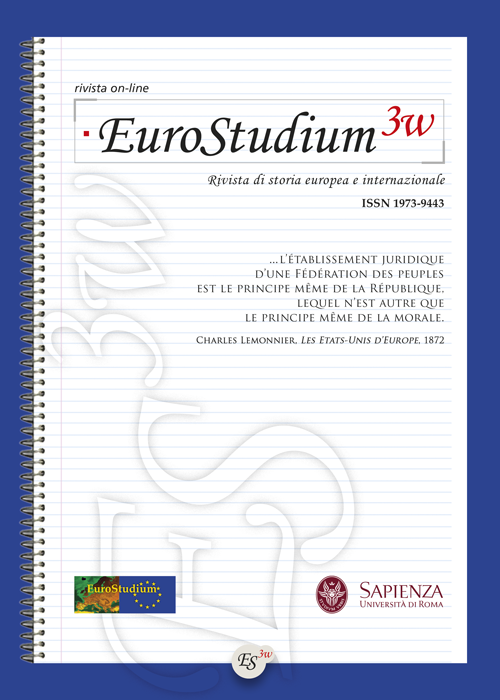Dal mondo antico alla virtù dei moderni. Storia e letteratura nel pensiero di Melchiorre Cesarotti In appendice il “Piano Ragionato di Traduzioni dal Greco”
Parole chiave:
Cesarotti, Enlightenment, Liberty and Human Rights, Classicism, Neoclassicism, Pre-Romanticism, Aesthetics Eighteenth Century, Querelle ancientmodern, History of Ideas, Culture HistoryAbstract
The article analyzes the evolution of Cesarotti's aesthetic, historical and anthropological thought, from the years of his classical training to his more mature academic works. Animated by keen curiosity, the abbot of Padua introduced European enlightenment and romantic issues into the Italian culture. This strong inclination for modern questions has interested the historiographical debate. Therefore, many scholars have defined Cesarotti as an enlightenment or a romantic author. As the article shows, Cesarotti, despite some precious modern insights and the insistent calls to the liberty of the human being, continued to determine himself with the categories of moderate Enlightenment. In other words, he conjugated the scientific achievements and the new idea of freedom with the traditionalist and metaphysical forms of classical rationalism. Cesarotti did not want to base indeed his philosophical thought on the individual's autonomy of judgment. According to the author, the decision of the individual must be integrated in a metaphysical philosophy, centered on the self-sufficiency of universal beauty and, more generally, of the moral, aesthetic and scientific laws, which pre-exist the human being and regulate his existence. The abbot then replaces the classicist and traditionalist literary form, which was built on the dogmatic core of the canon, with a rationalist/neoclassical artistic form, which was centered on the more inclusive, but nevertheless assertive and impersonal, dogma of the law. The historicistic and preromantic elements of his theory remain a minor argument, aimed solely at enhancing the cult of truth. A truth deposited in the judgment of the community of nobles, scholars, and worthy individuals. A social group that recognizes itself in a set of pre-established and immutable values. In the appendix of the article has been digitalized the Piano Ragionato di Traduzioni dal Greco, written by the author in 1778.##submission.downloads##
Pubblicato
2022-03-03
Fascicolo
Sezione
Saggi e ricerche
Licenza
Copyright (c) 2022 Eurostudium3w

Questo lavoro è fornito con la licenza Creative Commons Attribuzione - Non commerciale - Condividi allo stesso modo 4.0 Internazionale.


